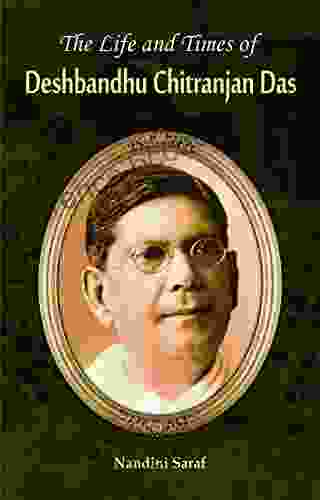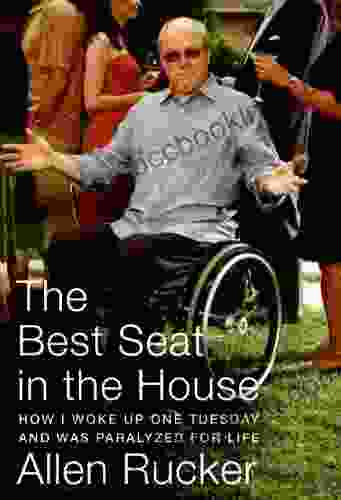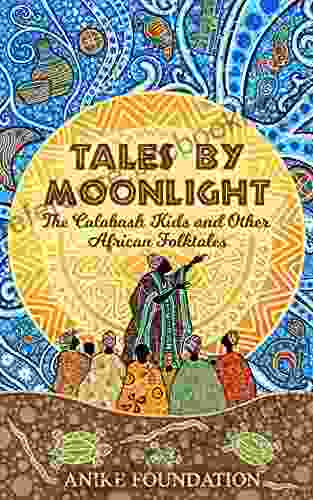The Life and Times of Deshbandhu Chittranjan Das: A Revolutionary Patriot

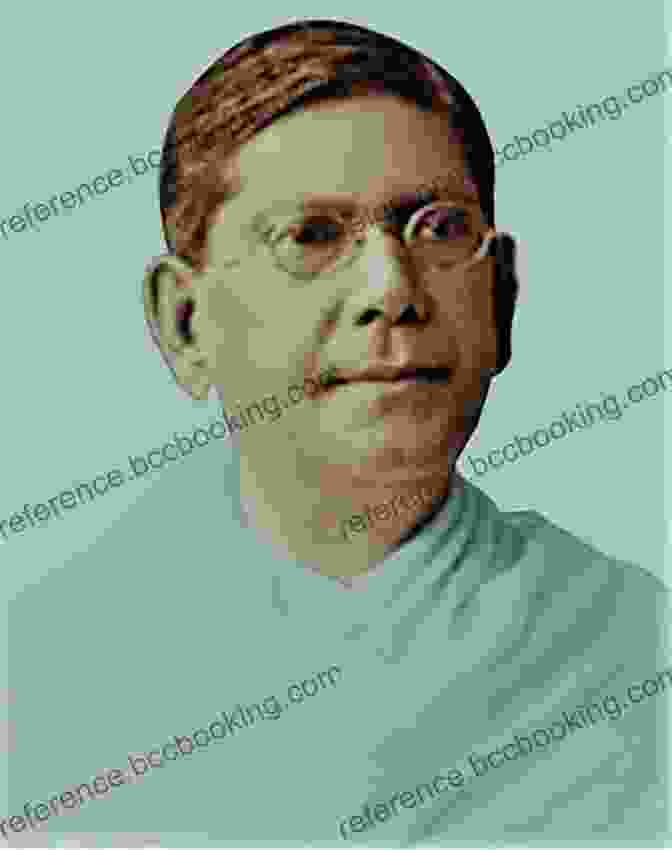
5 out of 5
| Language | : | English |
| File size | : | 1980 KB |
| Text-to-Speech | : | Enabled |
| Screen Reader | : | Supported |
| Enhanced typesetting | : | Enabled |
| Word Wise | : | Enabled |
| Print length | : | 175 pages |
The annals of India's freedom struggle are replete with the names of countless heroes and heroines who dedicated their lives to the cause of independence from British rule. Among these towering figures, Deshbandhu Chittranjan Das stands out as a brilliant lawyer, charismatic politician, and an ardent advocate of non-violent resistance. His contributions to the Indian National Congress and his leadership of the Bengal politics made him a household name during the early 20th century.
This article delves into the life and times of Deshbandhu Chittranjan Das, exploring his early life, education, legal career, political journey, and the profound impact he had on the Indian independence movement. Through the lens of his personal and public life, we will gain a deeper understanding of this extraordinary leader and his unwavering commitment to a free and independent India.
Early Life and Education
Chittranjan Das was born on November 5, 1870, in the village of Bakultala in South 24 Parganas district of West Bengal. His father, Bhuvan Mohan Das, was a renowned lawyer and scholar, while his mother, Basanta Kumari Devi, was a pious and devoted woman. Chittranjan's early life was marked by a strong sense of patriotism and a deep yearning for India's independence.
He received his primary education at home and later joined St. Xavier's College in Calcutta. His brilliance as a student became evident from an early age. He was an avid reader and had a remarkable ability to absorb knowledge. In 1890, he graduated with honors in Philosophy and went on to pursue a law degree from University College London.
Legal Career and Early Political Involvement
After completing his studies in England, Chittranjan Das returned to India and enrolled as an advocate at the Calcutta High Court. He quickly established himself as one of the most brilliant legal minds of his time. His courtroom victories brought him fame and recognition, but his true passion lay in serving the people and fighting for their rights.
Das's political awakening came during the Partition of Bengal in 1905. He joined the Indian National Congress and became an active participant in the Swadeshi Movement. His fiery speeches and incisive writings resonated with the masses, and he emerged as a leading voice of the nationalist movement in Bengal.
Leadership of the Bengal Politics
Chittranjan Das's charisma and leadership qualities soon propelled him to the forefront of Bengal politics. He was elected as the President of the Bengal Provincial Congress Committee in 1917 and played a pivotal role in shaping the political landscape of the province.
Under his stewardship, the Bengal Congress became a formidable force. He organized mass protests, promoted boycott of British goods, and advocated for Swaraj (self-rule) for India. Das's popularity soared, and he became known as "Deshbandhu" (friend of the country) by the people of Bengal.
Non-Cooperation Movement and Swaraj Party
The Jallianwala Bagh Massacre of 1919 marked a turning point in the Indian freedom struggle. Chittranjan Das was deeply moved by the brutality of the British authorities and joined Mahatma Gandhi's Non-Cooperation Movement. He gave up his lucrative legal practice and dedicated himself entirely to the cause of Indian independence.
Das played a leading role in organizing the Non-Cooperation Movement in Bengal. He led mass civil disobedience campaigns, boycotted foreign goods, and promoted the use of khadi (homespun cloth). His efforts contributed significantly to the success of the movement and brought him national recognition.
However, Das believed that the Indian National Congress should also participate in the legislative councils to further the cause of Swaraj. This led to the formation of the Swaraj Party within the Congress in 1922. Das became the leader of the Swaraj Party in Bengal and contested elections in the provincial council.
Civil Disobedience Movement and Imprisonment
The Swaraj Party's success in the elections alarmed the British authorities. They arrested Chittranjan Das and other leaders of the movement. Das was imprisoned for over a year and subjected to harsh treatment. However, he remained unyielding in his resolve for India's freedom.
While in prison, Das wrote his famous book, The Meaning of Swaraj, which outlined his vision for an independent India. He argued that Swaraj meant not only political independence but also social, economic, and cultural freedom for all Indians.
Upon his release from prison, Das continued to lead the Civil Disobedience Movement in Bengal. However, his health had been severely compromised by the harsh conditions of his imprisonment. On June 16, 1925, Chittranjan Das passed away at the age of 54, leaving behind a legacy that would continue to inspire generations of Indians.
5 out of 5
| Language | : | English |
| File size | : | 1980 KB |
| Text-to-Speech | : | Enabled |
| Screen Reader | : | Supported |
| Enhanced typesetting | : | Enabled |
| Word Wise | : | Enabled |
| Print length | : | 175 pages |
Do you want to contribute by writing guest posts on this blog?
Please contact us and send us a resume of previous articles that you have written.
 Book
Book Novel
Novel Page
Page Chapter
Chapter Text
Text Story
Story Genre
Genre Reader
Reader Library
Library Paperback
Paperback E-book
E-book Magazine
Magazine Newspaper
Newspaper Paragraph
Paragraph Sentence
Sentence Bookmark
Bookmark Shelf
Shelf Glossary
Glossary Bibliography
Bibliography Foreword
Foreword Preface
Preface Synopsis
Synopsis Annotation
Annotation Footnote
Footnote Manuscript
Manuscript Scroll
Scroll Codex
Codex Tome
Tome Bestseller
Bestseller Classics
Classics Library card
Library card Narrative
Narrative Biography
Biography Autobiography
Autobiography Memoir
Memoir Reference
Reference Encyclopedia
Encyclopedia Alice Rene
Alice Rene Alexander Armstrong
Alexander Armstrong Amy Chu
Amy Chu Amy Schumer
Amy Schumer Andy Jurinko
Andy Jurinko Alexandra Kenin
Alexandra Kenin Andrea Flores
Andrea Flores Amy Shields
Amy Shields Alyson Sheldrake
Alyson Sheldrake Alison Mccauley
Alison Mccauley Anakwe Joseph Chimeleze
Anakwe Joseph Chimeleze Angela Marsons
Angela Marsons Alex Zimmerman
Alex Zimmerman Andrea Hannemann
Andrea Hannemann Amit Singh
Amit Singh Andrew Crone
Andrew Crone Andrew Glass
Andrew Glass Alexandra Shulman
Alexandra Shulman Alison Cotter
Alison Cotter Alexander Steele
Alexander Steele
Light bulbAdvertise smarter! Our strategic ad space ensures maximum exposure. Reserve your spot today!

 Charlie ScottThe First Iditarod Mushers Tales From The 1973 Race: A Captivating Journey...
Charlie ScottThe First Iditarod Mushers Tales From The 1973 Race: A Captivating Journey... Harvey HughesFollow ·16.2k
Harvey HughesFollow ·16.2k Gabriel Garcia MarquezFollow ·10.8k
Gabriel Garcia MarquezFollow ·10.8k Wayne CarterFollow ·3.9k
Wayne CarterFollow ·3.9k J.D. SalingerFollow ·9.6k
J.D. SalingerFollow ·9.6k Arthur MasonFollow ·4.5k
Arthur MasonFollow ·4.5k Lee SimmonsFollow ·4.4k
Lee SimmonsFollow ·4.4k Branson CarterFollow ·4.8k
Branson CarterFollow ·4.8k Fabian MitchellFollow ·14.4k
Fabian MitchellFollow ·14.4k

 Julio Cortázar
Julio CortázarIf You Don't Do Politics, Politics Will Do You
Uncover the Hidden Power in Everyday Life In...
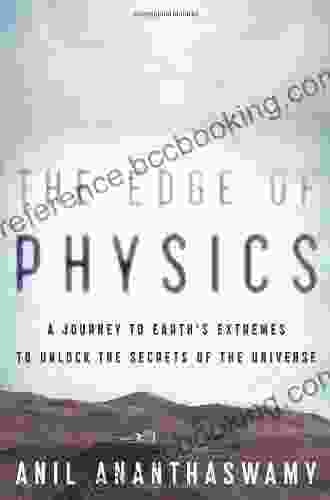
 Ivan Turner
Ivan TurnerThe Edge of Physics: Unraveling the Extraordinary...
What is the nature of...

 Diego Blair
Diego BlairAn Intuitive Guide For Using And Interpreting Linear...
Linear models...
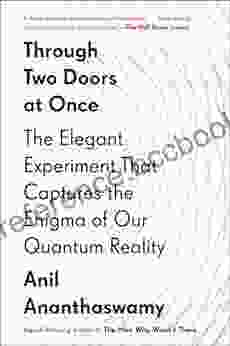
 Oscar Wilde
Oscar WildeThrough Two Doors At Once: Unveiling the Enigmatic World...
Prepare to delve into the captivating realm of...

 Darrell Powell
Darrell PowellWomen Athletes in History: An Inspiring Gift for Teenage...
Unveiling the Extraordinary Stories of Female...
5 out of 5
| Language | : | English |
| File size | : | 1980 KB |
| Text-to-Speech | : | Enabled |
| Screen Reader | : | Supported |
| Enhanced typesetting | : | Enabled |
| Word Wise | : | Enabled |
| Print length | : | 175 pages |


